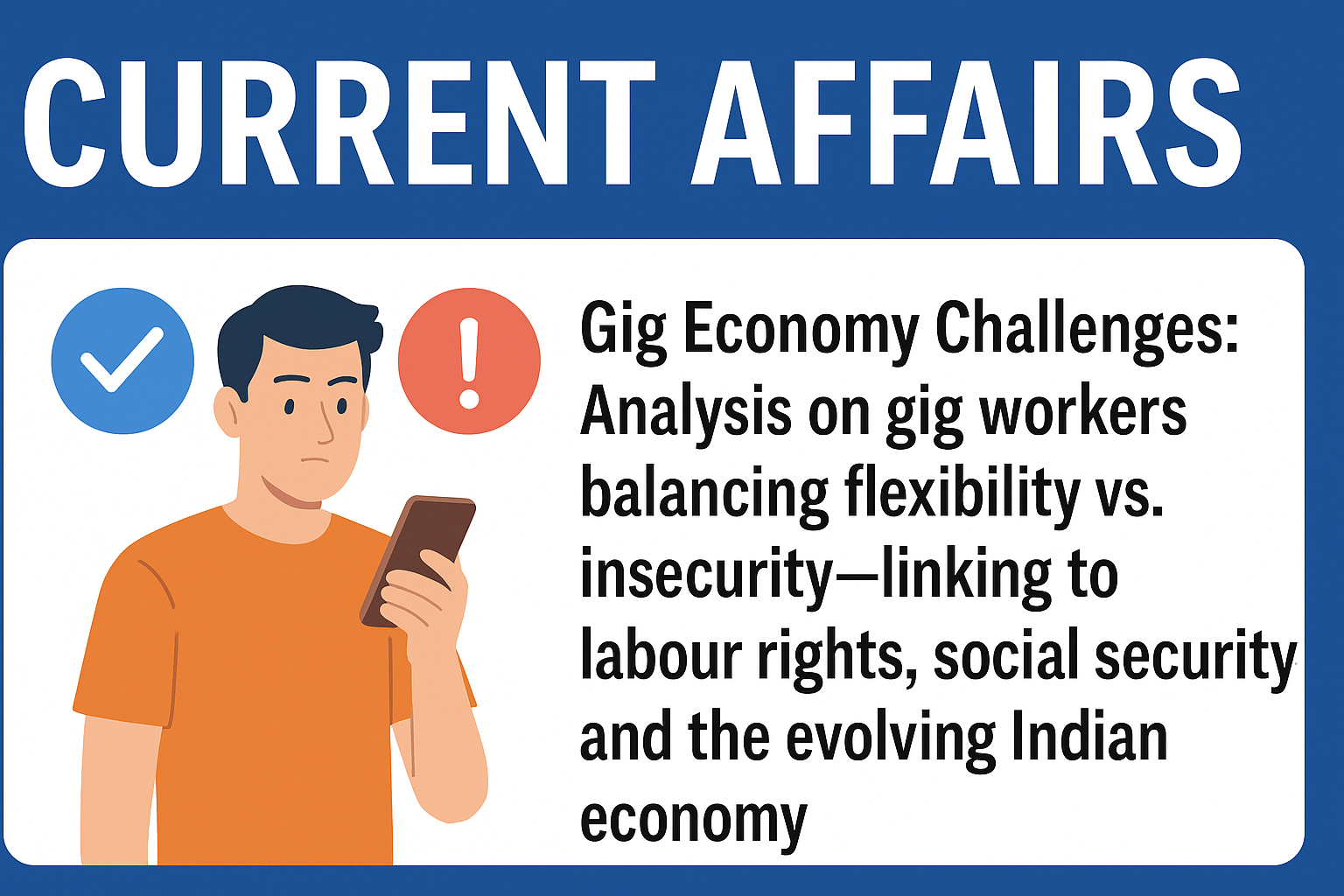
Topic for UPSC GS Paper II & III: Governance | Labour Rights | Inclusive Growth | Social Security | Indian Economy.
Context
The gig economy in India, driven by platforms like Zomato, Ola, Swiggy, and Urban Company, has expanded rapidly post-2016, especially after the pandemic. While it offers flexibility and entrepreneurial opportunity, it is now under scrutiny due to rising concerns over insecurity, absence of social protection, and lack of labour rights.
Key Issues and Challenges
| Aspect | Challenge |
|---|---|
| Flexibility vs. Insecurity | Gig workers can choose their hours but face job unpredictability and lack of benefits. |
| Social Security Deficit | No EPF, ESIC, or maternity leave; they fall outside the purview of the Factories Act or EPF Act. |
| No Employment Recognition | They are classified as partners or independent contractors, not employees. |
| Algorithmic Control | App-based rating systems influence work allotment, often leading to exploitation. |
| Income Instability | No minimum wage guarantee or floor earnings. Earnings fluctuate with demand. |
| Gender & Accessibility | Limited participation of women due to safety, lack of child care support, and digital gaps. |
Status and Growth
- India has 7.7 million gig workers (NITI Aayog 2022).
- Expected to reach 23.5 million by 2030.
- About 47% are in medium-skill jobs, 22% in high-skilled roles.
Government Measures & Policies
| Policy | Feature |
|---|---|
| Code on Social Security, 2020 | Recognizes gig & platform workers as a category. Proposes universal social security. |
| e-Shram Portal (2021) | Registers unorganised workers, including gig workers, with access to accident insurance. |
| Platform-Based Social Security Schemes (Proposed) | Public-private model for health and pension. Yet to be operationalized. |
Global Practices
- UK: Supreme Court ruled Uber drivers are employees, not contractors.
- EU: Digital Services Act to regulate working hours and data transparency.
- Indonesia & Brazil: Mandatory social insurance contributions from platforms.
Way Forward for India
- Implement tripartite regulation with platforms, workers, and government.
- Enforce floor wages, work hour caps, and grievance redressal.
- Expand health insurance & pension under a contributory model.
- Use e-Shram + Aadhaar + UPI stack for direct welfare disbursals.
- Promote digital & financial literacy, especially among rural gig workers.
Conclusion
The gig economy reflects the future of work, but its long-term sustainability depends on ensuring that labour flexibility does not come at the cost of fundamental rights. For India to achieve inclusive growth, labour policy reform, platform accountability, and universal social security are indispensable.
For Mains Answer Writing:
“In the absence of regulatory clarity, gig work in India remains a grey zone between employment and entrepreneurship.”
(Critically examine with reference to labour code reforms and welfare gaps – GS II/GS III)
